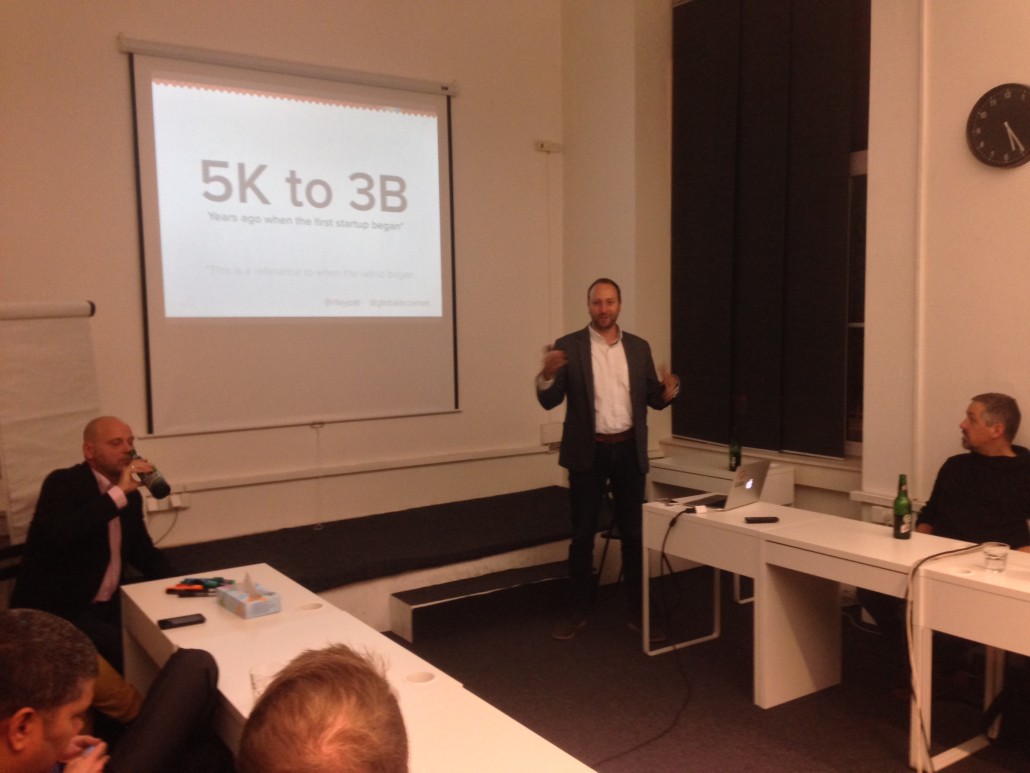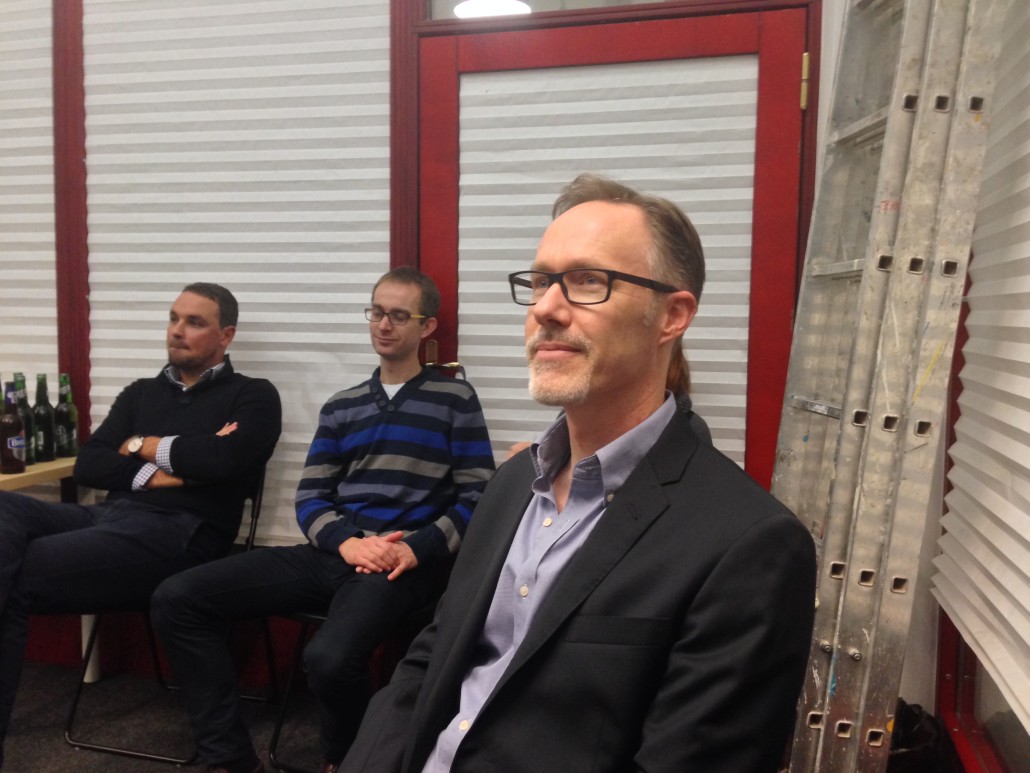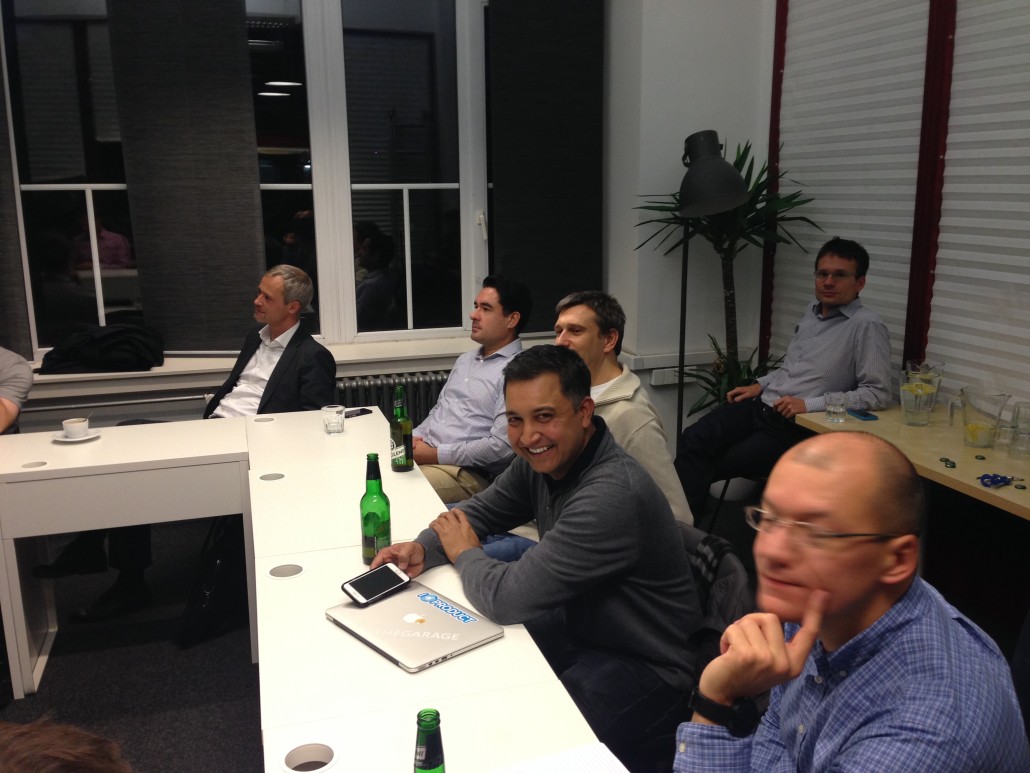Patrick Riley, of the GAN, visits StartupYard
Last week, in a private meeting with StartupYard mentors and team members, Patrick “Pat” Riley, CEO of the GAN (Global Accelerator Network), hosted a Q and A, and presented GAN’s vision of the current and future landscape for tech accelerators worldwide.
Riley, who began his startup career at a startup helping hospitals and medical centers to provide affordable medication to underserved communities, joined TechStars as Director of Business Development in 2011, launching the GAN the same year. Today, the GAN spans 6 continents, and includes over 70 selected accelerators in over 100 cities. The GAN is a selective network of accelerators, including the top 3-4% of accelerators worldwide, that together have accelerated 2500 companies in 4 years, together raising nearly $1 Billion in financing, and creating over 11,000 new jobs.
Pat visited StartupYard’s homebase at Node5 Thursday, meeting with half a dozen StartupYard startups.
Here’s what he had to say about central Europe as a whole, and about the startups he met:
“Central European startups are incredibly unique. They have very strong technical skills, the wherewithal to think about other markets on Day 1, and a laser focus on building products that solve a personal problem. We’re also seeing groups like Microsoft set up their development shops in Central Europe because of how inexpensive salaries are in the area – and startups are taking advantage of that as well. Because of all of this, we’re seeing the Central European startup scene evolve and develop in very positive ways.At the same time, there are headwinds facing these startups. First of all, capital is scarce. In the entire Czech Republic there are just a few early stage venture capital firms [ 2 of which, Credo Ventures and Rockaway, are both StartupYard investors]. For a country of 10.5 million people, there is a giant opportunity for greater funding sources.
Secondly, cultural, linguistic, legal and market differences plague many Central European startups. Starting in another neighboring market isn’t anywhere as easy as doing business in another state in the United States. That neighboring market in Europe is a completely different country with different currencies and regulations – making it very difficult to set up shop easily.
Third, while not all Central Europeans are this way, many are missing the “sales” side of their business. I heard over and over again how a customer’s problem was going to be solved technically – when in reality the tech is amazing– it’s the presentation that is lacking.
What many European startups are missing is the ability to sell their product well. During my meetings with startups, I asked many of them what was the vision for their startup, with the answer typically being around how the product has some cool feature. To sell investors, customers and partners, Central European startups need a vision about how they’re going to change the world – and why anyone should care about their startup – because unless you sell me on your vision, no one else is going to.”
The Need for More Institutional Investors
During his presentation at Node5, Riley mentioned the increasing role that accelerators have played in recent years as drivers of investment. Considering that startups have an average lifespan, according to Riley, of a little less than 8 months, early stage investment is one of the most common points of failure for startups across the board.
Riley discussed efforts that other accelerators, like Y-Combinator and Techstars, have made to bridge this gap in early financing, either by increasing the availability of convertible notes for companies who attend their programs, or by creating follow-on funds for their own startups.
Shifting Roles of Accelerators
Riley also discussed the shifting roles of accelerators on an east to west axis. Accelerators in Eastern and Central Europe continue to function much as those in California and Western Europe have for over a decade, as nurturing environments for entrepreneurs to grow their networks and experience level, as they test out and perfect their products and go to market plans.
But as accelerators in the West have matured, and competition has become more fierce not only between startups, but also between accelerators (as well as now between accelerators and other early stage investors), they have also continually provided more funding, been more selective, and offered less and less in terms of the kind of support that accelerators had been known for offering. Workshops, training, and team building have been reduced in favor of more intensive mentoring, and more focus on pitching and business planning.
This confirmed the experiences that Ales Teska of TeskaLabs, one of our startups from 2015, described in making the transition between StartupYard, and TechStars London. Riley pointed out that in countries with fewer institutional investors, and less “startup IQ,” awareness of how to work with and deal with startups is still a major roadblock to success, for which more “hands on” accelerator programs are still needed.
The Role of Mentors
According to data the GAN collects, up to 90% of startups accepted at accelerators are recommended by members of the accelerator community, particularly by active mentors. This again confirms our experience at StartupYard, where many, but certainly not all of the standout applications have come from personal referrals.








